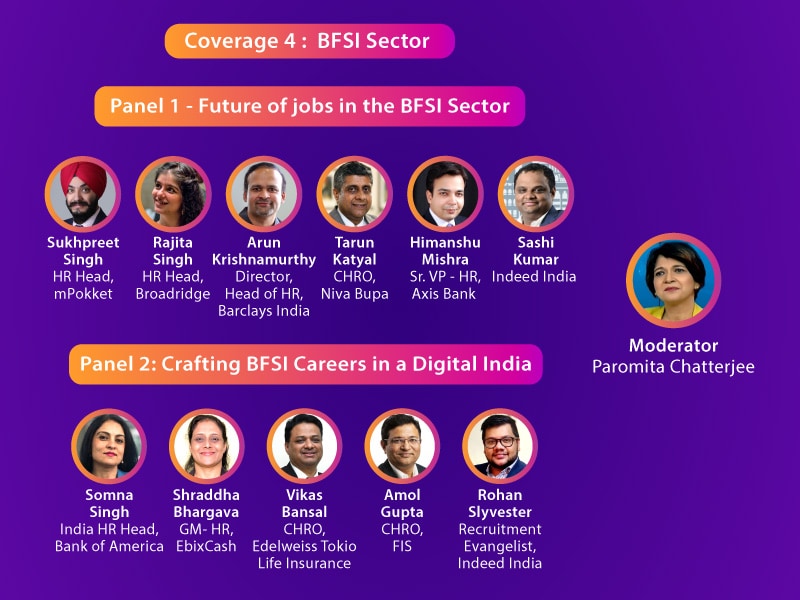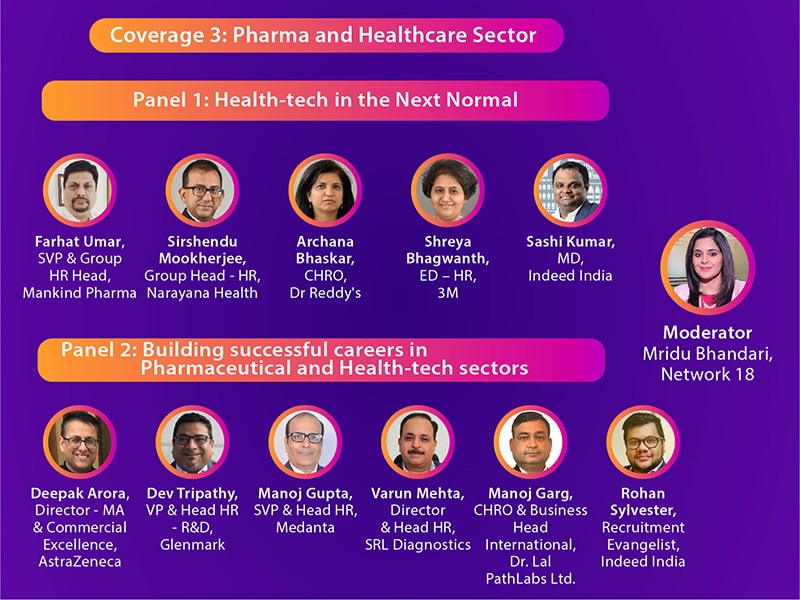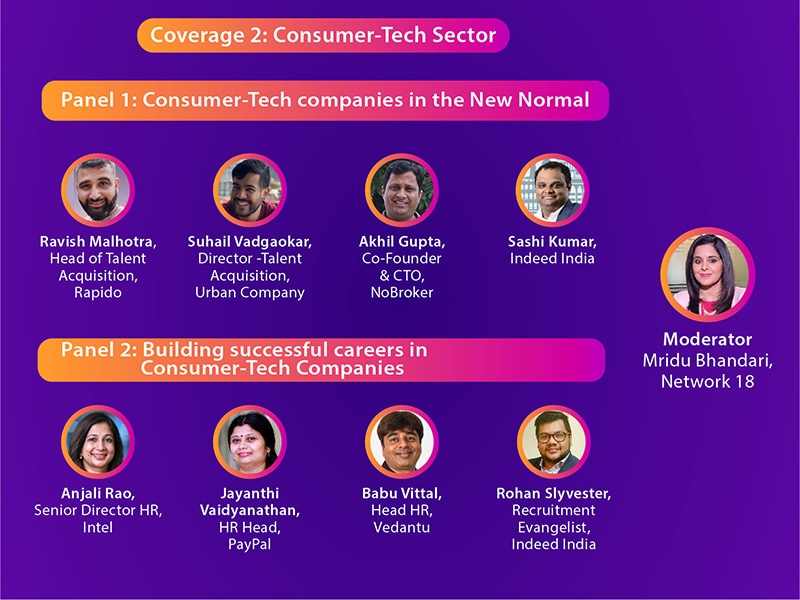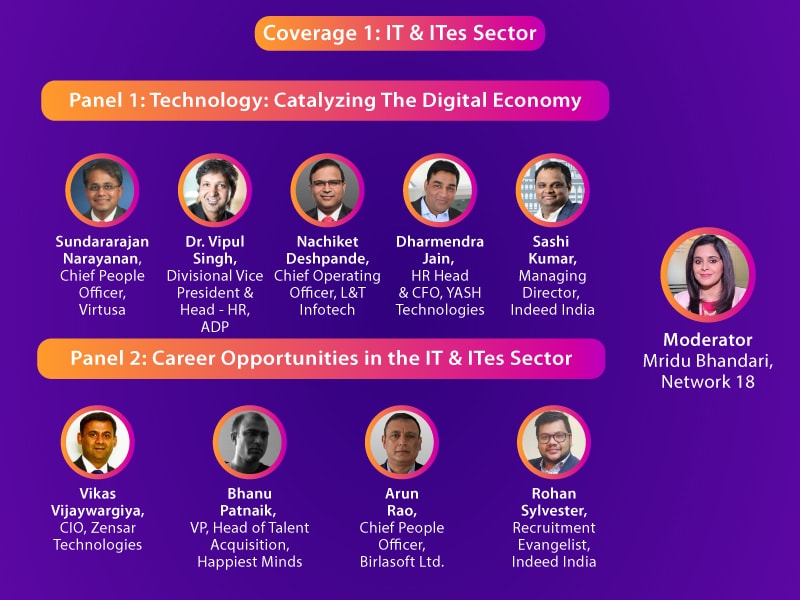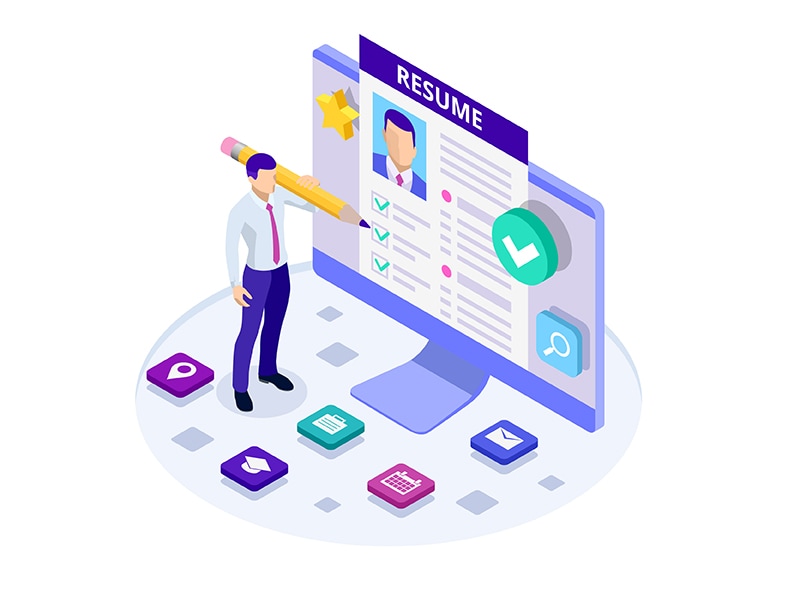Forbes India, Indeed and industry leaders come together to explore jobs of the next decade
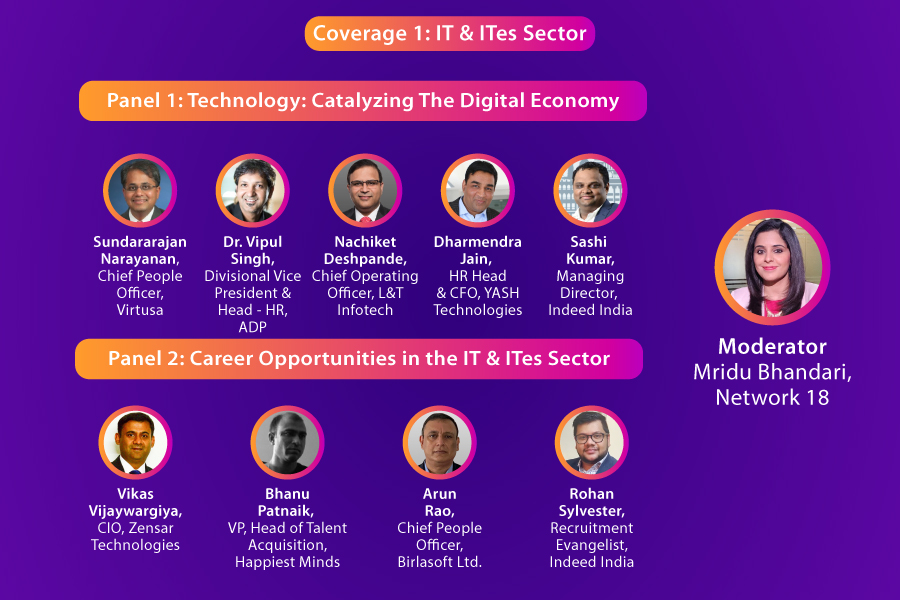 2020 was a tumultuous year on many fronts, leading to significant job losses across the world, across sectors and geographies. Yet some industry segments, like the Indian IT sector, managed to gain significance, largely due to the nature of the pandemic, which accelerated the move towards digitalization. Nevertheless, as a result of the disruption and the new order that has emerged, job requirements in the IT space are expected to undergo a tectonic shift with technologies like artificial intelligence, blockchain, machine learning and data analytics gaining importance.
2020 was a tumultuous year on many fronts, leading to significant job losses across the world, across sectors and geographies. Yet some industry segments, like the Indian IT sector, managed to gain significance, largely due to the nature of the pandemic, which accelerated the move towards digitalization. Nevertheless, as a result of the disruption and the new order that has emerged, job requirements in the IT space are expected to undergo a tectonic shift with technologies like artificial intelligence, blockchain, machine learning and data analytics gaining importance.
This has uncovered a host of concerns, including what kind of new jobs are going to come up? What should job seeker of today be looking at while planning a career for the future? What reskilling or upskilling is required and how are HR leaders preparing for these and other changes that are coming their way?
Seeking clarity on these concerns and others, Forbes India Jobs of the Next Decade powered by Indeed brought together thought leaders to offer insights on this unchartered terrain. The webinar featured two panel discussions moderated by Mridu Bhandari, Editor - Special Projects, Network18.
Technology: Catalyzing The Digital Economy
The first discussion, themed ‘Technology: Catalyzing The Digital Economy’ featured Sundararajan Narayanan, Chief People Officer, Virtusa; Dr. Vipul Singh, Divisional Vice President & Head - HR, ADP; Nachiket Deshpande, Chief Operating Officer, L&T Infotech; Dharmendra Jain, HR Head & CFO, YASH Technologies and Sashi Kumar, Managing Director, Indeed India.
In response to the current pandemic and the need for social distancing, remote working has gained prominence. Sashi Kumar shared significant facts and figures that suggested both job seekers and employers endorsed this trend. “As we move forward, even after the effects of this pandemic recede, we would possibly see many companies offering flexibility and hybrid options that entail a combination of working from offices and homes,” he observed. He pointed out that to facilitate this trend, investments in digital assets, infrastructure and even cyber security have seen a spike. However, from an HR standpoint there is a need for organizations to measure productivity more by outcome than by the number of hours.
Sundararajan Narayanan was very optimistic about work from anywhere or, as he referred to it, WFX, observing, “It's the future and it's here to stay. We are now able to reach a much larger geography and diversity pool than ever before.” He also noted that flexibility would be a beneficial feature in the new normal, enabling women to return to the work force after a career break, accommodating differently abled who may have found commuting to work a challenge and tapping into the gig force, amongst various other advantages rendered.
Against the backdrop of these changing trends in the workspace, the discussion shifted to how job seekers should prepare themselves. “Jobs related to data science, AI, cloud, 5G, etc. were already gaining relevance in the past few years; they are not new but the demand for such technologies has accelerated and so has the demand for relevant talent,” observed Nachiket Deshpande. Another fallout of the sudden and near-universal drive to digital has been the expectation of ‘full stack’. He advised that in the future, job seekers should work towards a full stack mindset and continue to have breadth of various skills that are needed.
Dharmendra Jain suggested that with industries getting automated and digitized across the board, everything from manufacturing to healthcare, education and entertainment will need people with a combination of domain and technology skills. Taking that theme further, Sashi Kumar added that beyond tech and domain skills, curiosity, creativity, flexibility and adaptability and other soft skills would play an important role as people would be dealing with a distributed workforce.
To elaborate further on the jobs of the future that do not exist yet, Vipul Singh recounted various job designations, such as Chief Diversity and Inclusion Officer, Future of Work Leader, Work from Home Facilitator, Head of Employee Wellbeing and various others, where the specific role attached to the designation could not really be articulated. He also expressed how existing professions, like teachers, hardware engineers, content developers and designers were undergoing a massive transformation.
The discussion moved on to what skills will become extinct; the need for mapping skills to jobs; ways for educational institutions, industry and the country at large to bridge the need gap; how technology can be leveraged to make skilling more futuristic; behavioural changes that job seekers will have to inculcate, etc. There was a broad consensus that the future model of work would be hybrid and the panel deliberated the challenges HR leaders face while implementing it.
Career Opportunities in the IT & ITeS Sector
The next panel discussion featured Vikas Vijaywargiya, Chief Information Officer, Zensar Technologies; Bhanu Patnaik, VP - Talent Management, Happiest Minds Technologies; Arun Dinakar Rao, Chief People Officer, Birlasoft and Rohan Sylvester, Recruitment Evangelist, Indeed India, sharing their perceptions on the theme ‘Career Opportunities in the IT & ITeS Sector’ and related issues. They explored which careers or jobs would be in high demand in the IT sector over the next decade; how the gap between the demand and supply of new IT jobs could be reduced; offered insights on the talent acquisition function and its transition, in line with the evolving Indian IT landscape and various other emerging trends.
While the next decade of jobs will be shaped by new technologies that are yet to be developed and, therefore, are relatively unpredictable, Rohan Sylvester offered a peek at the kind of jobs that Indeed currently foresees. “Post-Covid, companies are looking for roles like IT security specialists, network security engineers, security analysts and security consultant, among others. Blockchain technologies are also catching up, led by the BFSI, retail and pharma domains. And lastly, to upskill and retrain employees in the new world, companies are looking towards the learning and development sector.”
While there is a deficit of skill in most areas catering to new technologies, upskilling and cross skilling are clearly solutions to bridging the gap in an era where skill demands are changing so rapidly. However, Arun Dinkar Rao suggested, “Academia and industry together need to help prepare people to adapt to changing dynamics in the workplace because what sells today will be obsolete tomorrow. We need to collectively uplift the skill base, whereafter upskilling and cross skilling will help people stay ahead of the curve.”
hanu Patnaik agreed that it's not the responsibility of any specific organization but rather the entire ecosystem that must be structured to deliver a base, which is skill-ready and then organisations can just put the icing on the cake, as per their skilling requirements.
As the CIO of a business, Vikas Vijaywargiya observed that merely equipping people with relevant skills, be it AI, Analytics, security, cloud, would not be a complete solution. Bringing in the real-world perspective is important at the base line because technology is eventually used to solve real issues. “We need to have a mix and match of both business understanding and technology skills,” he said.
The panellists continued to express their views on work trends in the near future. They covered issues of adjacency in reskilling; technology, content and change management; agility and competence; relevant training; the role of technology in talent management; transformation of the IT sector due to work from home and various other matters related to the progress of the sector.
Queries, concerns and takeaways
Being an interactive webinar, both panel discussions concluded with the participants taking question from the audience, which elicited their views and advice on various issues related to jobs in the near and medium-term future.
The panellists also offered succinct and valuable advice to the class of 2021, who were perhaps the hardest hit segment. They counselled young minds to understand technology from a larger perspective and align themselves accordingly, suggesting that they should keep challenging themselves and always own their learning agenda. They advocated creativity, flexibility, differentiation and learning agility to stay ahead. Most pertinently, they persuaded jobseekers to stay positive since the worst is over and the job market is going to explode; that said, jobseekers should use the current hiatus to prepare for an amazing future.
The pages slugged ‘Brand Connect’ are equivalent to advertisements and are not written and produced by Forbes India journalists.
